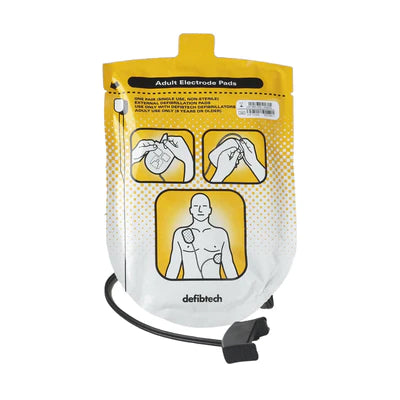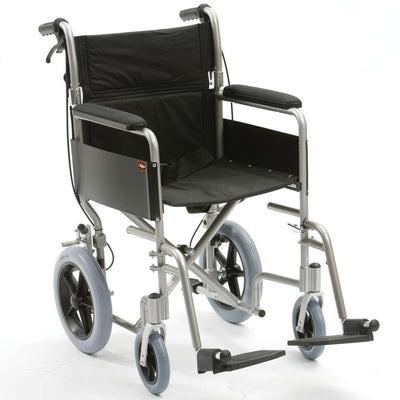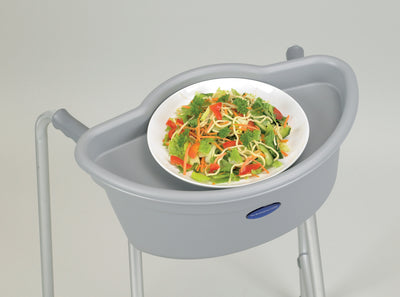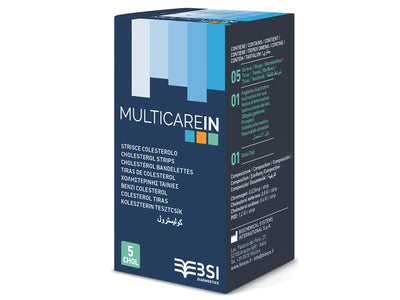Dementia is a degenerative condition that affects cognitive function, memory, and mental abilities. With the global population ageing, dementia has become a growing concern for many individuals and their families.
While it may not be possible to prevent dementia entirely, increasing evidence suggests specific lifestyle changes and habits can significantly reduce the risk of developing this debilitating condition.
In this comprehensive guide, we will explore 12 proven ways to prevent dementia naturally and address common questions about the role of supplements and specific habits that promote brain health.
Nutritional Recommendations for Dementia Prevention
Imagine if you could arm your brain with a protective shield, helping it stay sharp and agile. Well, you can - with the power of a balanced diet. The meals you savour have a role in safeguarding your cognitive functions. Foods packed with antioxidants serve as your brain's personal bodyguards, defending your precious brain cells against damage and, as a result, helping to slam the door in dementia's face.
Antioxidants can be found in a wide range of foods - juicy berries, lush leafy greens, robust whole grains, and fatty fish that dance through our oceans. These aren't just foods - they're your allies in maintaining a healthy mind.
Picture this - blueberries and strawberries, nature's sweet candies, doing much more than just pleasing your palate. These fruits are diligent soldiers on the front lines, protecting your brain cells from harm, putting the brakes on cognitive decline, and boosting your brain's overall performance.
Then, enter the realm of green leafy vegetables. Spinach and kale might look unappetising at first glance, but they're dense with nutrients - vitamin K, lutein, and folate - all contributing to a well-nourished, fit brain.
Whole grains like quinoa, brown rice, and whole wheat products are also part of this elite league. They're filled to the brim with fibre and vitamin E, paving the way for your brain to function at its peak.
Lastly, remember the seafood stars - mackerel, sardines, and salmon. Rich in omega-3 fatty acids, they're like excellent for your memory and cognitive skills.
So, the next time you fill your plate, remember, you're not just eating - you're fuelling your brain with the best defences nature has to offer.
Lifestyle Modifications to Ward Off Dementia
Revamping your lifestyle can pack a powerful punch in bolstering your brain health, sharpening your cognitive functions, and putting up a defence against dementia. Exercise isn't just about building muscle or burning calories – it's your brain's best friend too! With every heartbeat during a workout, you're fueling your brain with more oxygen and improving blood flow.
But that's not all – by embracing an active lifestyle, you're essentially turning into a master builder who's busy constructing new brain cells, enhancing their neural connections, and paving the way for improved cognitive abilities.
But the fight for a dementia-free life doesn't end with a brisk walk or a vigorous workout. Here's another piece of the puzzle – keeping your body weight in check. If the scales are tipping towards the heavier side, you might be opening the doors for unwanted guests like diabetes, high blood pressure, and high cholesterol levels – the notorious trio are known to increase the risk for dementia. Staying within a healthy weight range isn't just about looking good; it's about ensuring your brain stays in its prime for years to come.
Mental Exercises to Counter Dementia
You can stimulate the power of your mind through mental activities, an essential strategy in dementia prevention. This proactive approach keeps your brain agile, hones cognitive skills, and supercharges your brain's processing capabilities.
Consider the immense satisfaction of unravelling a gripping novel, tackling challenging puzzles, orchestrating wins in strategy games, or mastering a musical instrument or a foreign language. Each of these tasks not only provokes your intellect but also sparks your creativity, paving the way for enhanced cognitive health.
As you expand your mind with these mental activities, you can also bring your friends along for the ride. Engage with friends over a challenging board game or discuss thought-provoking ideas in a book club. Any social interactions are beneficial to your brain's training.
Such shared experiences foster an enriching social environment, which is crucial in maintaining mental health and warding off dementia. As you explore these mind-stretching, socially rewarding activities, you're building a formidable defence against cognitive decline. Each intellectual challenge is another step in your journey towards a healthier, sharper mind.
Physical Activities to Counter Dementia
Physical exercise offers multiple benefits to the brain. It increases blood flow to the brain, supplying essential nutrients and oxygen, encouraging the growth of new brain cells, and supporting cognitive function. Moreover, regular physical activity helps maintain a healthy weight, balance, and flexibility, thereby reducing the risk of chronic conditions linked to dementia.
Aerobic exercises like walking, swimming, or cycling can enhance mental performance and play a crucial role in dementia prevention. These exercises increase the heart rate and blood flow, thereby supplying the brain with vital nutrients and oxygen.
Resistance training, including weight lifting and bodyweight exercises, strengthens muscles and improves balance, reducing the risk of falls and injuries that could lead to cognitive decline.
Even less intense exercises such as yoga and stretching can contribute to overall flexibility, balance, and stress reduction, all crucial for maintaining cognitive health.
Importance of Rest and Quality Sleep
Rest and quality sleep are crucial to cognitive health. Sleep serves as a critical period for the brain to rest, rejuvenate, and process the day's information. During sleep, the brain eliminates harmful proteins and toxins that may build up over time and contribute to cognitive decline and dementia.
Adults should aim for 7-9 hours of sleep each night. Maintaining a regular sleep schedule, fostering a peaceful sleep environment, and establishing a sleep routine can contribute to improved sleep quality. Poor sleep habits can result in cognitive decline and health issues like obesity, diabetes, and cardiovascular disease, all of which are risk factors for dementia.
You can read more about how you can improve your sleeping habits read more now.
Social Interaction and Engagement
Remaining socially active and nurturing robust connections with others is vital in preventing cognitive decline and lowering the risk of dementia. Continuous social interaction is linked to better mental health, a stronger immune system, and a lower risk of dementia.
Socialising stimulates the brain, fostering the development of new connections and potentially delaying the onset of dementia symptoms.
To maintain a healthy social network, individuals can participate in group classes, join community clubs, maintain close relationships, and remain open to making new friends.
Stress Management
Think of stress as an uninvited guest at a dinner party, sapping the joy from the evening. Now, imagine if that guest had the power to affect not only your mood but also your cognitive health, with the potential to set the stage for dementia. Chilling, isn't it? This is the underhanded power that chronic stress can wield over your brain's health.
The brain, under relentless stress, gets bathed in a cocktail of hormones, such as cortisol, which can be the equivalent of throwing a wrench into the fine-tuned machine of your mind. The aftermath? Muddled memory, impeded cognitive function, and even the death of brain cells.
However, don't let this cast a cloud over you. There's a silver lining. Your body has innate tools to counteract stress: the art of relaxation. Think of deep breathing exercises, meditation, or yoga - these aren't just for soul-searchers and fitness fanatics. They're for anyone who wants to keep their mind razor-sharp and tranquil.
And sometimes, our stressors might be like a complex puzzle that's hard to solve alone. Don't hesitate to seek professional help. A coach in your corner can make all the difference when you're wrestling with life's challenges. Consider this your call to action to take control of your stress and, by extension, your cognitive destiny.
Avoiding Smoking
Choosing to quit smoking is a decision that can significantly improve your overall health and substantially reduce the risk of dementia.
Smoking has a detrimental impact on your brain, acting as a catalyst for cognitive decline. It's an influential risk factor for dementia, a condition that everyone naturally wants to avoid. But there's good news: when you decide to quit smoking, you take an essential step towards safeguarding your cognitive health.
The benefits of quitting smoking extend well beyond dementia prevention. Other health risks linked to smoking, such as lung cancer, heart disease, stroke, and chronic obstructive pulmonary disease, also decrease when you quit.
Remember, each cigarette you don't light is a step towards a healthier future. By quitting smoking, you're not just improving your present state of health but also investing in your future well-being.
Read more on how to quit smoking.
Reducing Alcohol Intake
Taking steps to reduce alcohol consumption is an effective strategy on the road to preventing dementia. Over-indulgence in alcohol is often tied to cognitive decline, putting one on a path that could potentially lead to dementia.
When we think about alcohol, we often underestimate its ability to cause harm beyond a temporary hangover. Yet, excessive drinking can directly assault our brain cells and interfere with the role of neurotransmitters, which are crucial to cognitive function. The consequence? Our ability to think, remember, and learn could be drastically affected.
But the effects of heavy drinking don't stop at our brains. Alcohol's damaging reach extends to other vital parts of our body. Your liver, heart, and digestive system are all at risk.
While moderate alcohol consumption may seem harmless excessive drinking can substantially increase the risk of cognitive decline and other health problems. So remember, reducing your alcohol intake is not only an investment in your cognitive health but also a pledge to your overall well-being.
Management of Chronic Conditions
Actively managing and treating chronic conditions like diabetes, high blood pressure, and high cholesterol is critical for maintaining brain health and reducing dementia risk.
These conditions, if left untreated, can contribute to cognitive decline and negatively impact overall health. By managing these chronic diseases, individuals can minimise their risk of developing dementia later in life.
Regular medical checkups and monitoring of chronic conditions will help ensure they are managed appropriately. Following prescribed treatment plans, such as taking medications consistently and incorporating lifestyle modifications like a healthy diet and regular exercise, will enable individuals with chronic diseases to maintain their health better.
Cardiovascular Health Monitoring
Cardiovascular health directly affects brain health. An efficiently functioning heart provides the brain with the oxygen and nutrients necessary for proper function. Maintaining a healthy cardiovascular system is vital for reducing the risk of cognitive decline and dementia.
To promote cardiovascular health and reduce dementia risk, individuals should focus on a heart-healthy lifestyle. This includes managing blood pressure and cholesterol levels, maintaining a healthy body weight, and engaging in regular exercise. A balanced diet rich in fruits, vegetables, whole grains, lean proteins, and healthy fats is another key aspect of maintaining cardiovascular health.
Engaging in Cognitive and Creative Activities
After all those scary topics, let us end this list with a more fun activity we can use to combat dementia.
Unleashing your creativity is not just a source of joy and self-expression; it's also a fantastic way to keep your brain buzzing with vitality and prevent cognitive decline.
There's a whole palette of activities out there, perfect for sparking that creative flame and honing those cognitive abilities, no matter what stage of life you're in.
Picture yourself, brush in hand, as you let your imagination take the lead, swirling colours across a blank canvas. Artistic endeavours such as painting or drawing not only cultivate your creativity but also put your brain in a state of 'flow', a kind of mindful engagement that's beneficial for brain health.
You may see yourself crafting an enchanting tale or a moving poem. Writing, be it stories, poems, or even journaling, is an activity that stirs up your creative thoughts while giving your brain a satisfying workout.
You may be sculpting a piece of clay, feeling its texture as your hands mould it into a tangible creation. Engaging with tactile art forms like pottery or sculpture keeps your hands busy and your brain sharp.
Ever thought about dipping your toes into the world of drama? Taking part in a local theatre production can be a fun, engaging way to stimulate your mind and meet new people.
And why not try your hand at photography? Capturing the beauty around you not only enhances your attention to detail but also stimulates your cognitive abilities.
Through these activities, you're not just creating art - you're also promoting relaxation, exploring new perspectives, and crafting new neural pathways that can help to keep cognitive decline at bay. So go ahead, dive into the vibrant world of creativity, and let it serve as a delightful, colourful tool for brain health.
Conclusion
In conclusion, protecting and enhancing brain health is not a mere possibility—it's a journey of actions, decisions, and habits that can create a profound impact on your cognitive functions. From fostering physical fitness, maintaining a balanced diet, and embracing quality sleep, to managing stress, quitting smoking, moderating alcohol intake, and immersing oneself in creative pursuits, every step you take towards a healthier lifestyle is a stride in safeguarding against cognitive decline and dementia.
This journey, however, isn't a solitary one. It's important to engage with healthcare professionals, friends, and family along the way. It's a shared voyage of discovery and well-being. And remember, while the goal is to prevent dementia, the path of this journey is filled with rewards—increased vitality, better physical health, sharper cognition, and an overall enhanced sense of well-being.
In essence, the steps you take to ward off dementia don't just lead to a healthier brain but to a more fulfilling, vibrant, and enriched life. So embark on this journey today and let each step echo with the promise of better cognitive health and a future filled with vibrant memories.





































